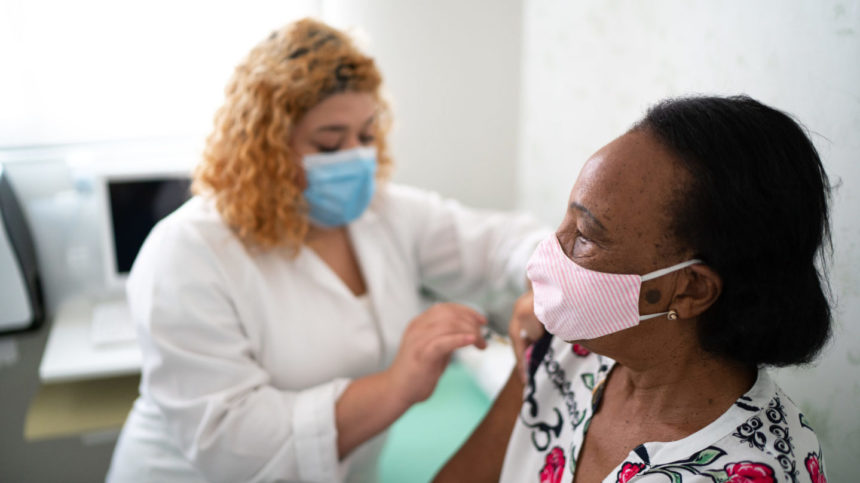
Older adults who are not up-to-date on their pneumococcal vaccine are unlikely to accept the shot after admission to a nursing facility, a study of pre-pandemic vaccinations finds.
Investigators examined Centers for Medicare and Medicaid data for skilled nursing facilities from October 2014 through September 2018. Pneumococcal (PCV13) vaccination status was confirmed using Minimum Data Set Medicare Part B claims.
Of more than 1.5 million residents whose records revealed they were not up-to-date on their vaccination, 78% had no Part B claims for PCV13 either before or after admission to the nursing home. Fully 71% of these residents were recorded as refusing the vaccine when offered. Only 1.3% received a shot within 99 days after admission.
Factors associated with lower likelihood of receiving the PCV13 vaccine included residence in a for-profit facility, male sex, Black race, Hispanic ethnicity, severe cognitive impairement, diabetes and long-stay status of 100 days or more. These residents also were less likely to have received an influenza vaccine.
The PCV13 shot was recommended in 2014. Until this year, it had been the mainstay vaccination for preventing illnesses caused by the Streptococcus pneumoniae bacteria, a common cause of infection in senior adults. In 2021, two new vaccines, PCV15 and PCV20 were approved with added protection against additional microorganisms for older adults. As of early February, they are now part of the CDC’s 2022 Recommended Adult Immunization Schedule.
The high rate of refusals among some residents is cause for concern, the study’s authors said.
“Strategies to promote newly recommended PCV15 or PCV20 vaccination upon nursing home admission may be needed,” they concluded.
Full findings from the current study were published in the Journal of the American Geriatrics Society.
A summary of the CDC’s updated immunization recommendations including the new vaccines is also available.



